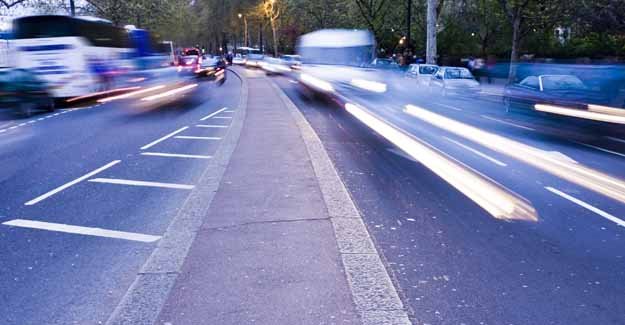Car use reduction polices could have unforeseen economic and social consequences according to Elizabeth Dainton, Research Development Manager for the Royal Automobile Club Foundation, speaking today at the 7th International Mo.Ve Mobility Forum in Venice* (25).
In response to the panel debate titled ‘Car Dependency of individuals: lazy and wasteful drivers or lack of viable and acceptable alternatives?’ Ms Dainton will explain that the vast majority of UK car users are not wasteful or lazy drivers, they simply lack viable and acceptable alternatives to the private car. If badly designed policies are implemented to reduce car usage for climate change, carbon emission, congestion, road safety or human health reasons unforeseen economic and social consequences are likely to result. Ms Dainton will argue that the trade-offs required need to be better understood before policy is developed and implemented.
Drawing on the RAC Foundation’s previous** and forthcoming research*** Ms Dainton will explain that the reason people use cars is complex, motivated by individual needs and wider society planning. The term ‘car dependence’ has so far helped and hindered the debate, by confusing the issue, suggesting that all administrations addressing car usage require a fresh way of looking at future challenges.
Ms Dainton will describe car use as an activity that has now spread across the UK population, especially to those groups who have not traditionally had access, such as women, older people and lower income groups. Car ownership continues to be aspirational, particularly for young people.
The growing pressures on car usage are such that non-voluntary car restriction policies are likely to increase. Ms Dainton will argue that these policies should not proceed without full understanding of the social and economic consequences of reducing people’s travel horizons in this way.
Elizabeth Dainton, Research Development Manager at the Royal Automobile Club Foundation says:
‘Car use has become the norm. It is an important feature of modern life, which has provided an unparalleled level of mobility and access to people going about their everyday activities. Car ownership and use has formed the basis of people’s decisions on where to live, work and educate their families. These decisions are hard to reverse’.
‘Nationally and Internationally we face the same significant challenges of climate change, carbon emissions, congestion, road safety and human health problems. Transport generally and car use in particular has an important role to play in addressing these concerns and it is likely that non-voluntary car reduction policies will be increasingly developed. These policies should not be implemented without a full understanding of the social and economic consequences of limiting travel horizons by reducing car use. Policy in this area must not race ahead of understanding’.
ENDS
* The 7th Mo.Ve Mobility Forum is an International Conference focusing on the issue of ‘Car dependence within city regions’. The conference organised by the Mobility Forum and the Automobile Club d’Italia will be taking place on 25th and 26th November in Venice. For more details see: http://www.move-forum.net/page.php?cPath=23_148. Elizabeth Dainton. Research Development Manager for the RAC Foundation will be speaking at a panel session titled ‘Car Dependency of individuals: lazy and wasteful drivers or lack of viable and acceptable alternatives?’
** RAC Foundation (1995) Car Dependence
*** RAC Foundation (Forthcoming) working title ‘Cars and Society: Recent trends and future challenges’


